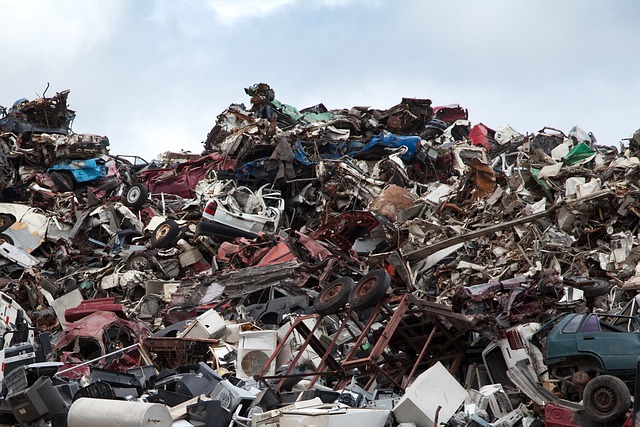

A Throwaway Society
This week’s TRUTH: In 1000 Words or Less was inspired by a drive through the mountains of the Colorado high country. Traveling through the small metropolis of Gunnison on our way to Crested Butte, my girlfriend and I drove by a seemingly innocuous sight that somehow sparked my curiosity….
“Hey, did you just see that television repair shop back there?”
Stunned by my complete nonsequitur despite being quite accustomed to my predilection for deriving both meaning and amusement from the otherwise mundane elements of life that others can just pass by, she turned around to look out the rear window, and replied, “You mean Henry’s TV Repair? What about it?”
“Doesn’t it make you wonder how a television repair shop stays in business in a town this size? I mean, when was the last time you even saw a television repair shop?”
“Well, from the look of Henry’s store, it doesn’t look like he’s been in business for quite some time now.”
In fairness, as I did research for this piece, it turns out that Henry’s television business is doing just fine, thank you very much, despite the dilapidated shit hole it is run out of. But the reason for that comes not so much in the form of the repair side of the business, but rather the sale and installation of new televisions sets and home theater system installs. That’s because no-one takes their televisions or other electronics to get serviced anymore. We simply throw them away.
We have become the ultimate disposable society, a culture predicated on a pervasive consumerism that pushes us to buy things, use them for awhile, trash them, and then go right back out to buy them again. It is a perpetual cycle of waste creation driven by corporate America’s insatiable greed that can only be fed by us buying more goods and thus giving them more money. They create substandard products with an inherently short shelf-life and sell them to us at remarkably low prices, so low that it does not justify taking care of them or repairing them. Instead, we just throw them on the trash heap and go buy another one, keeping the cycle of consumerism alive and well.
A few years back, my kids and I went to a toy exhibit at the Colorado History Museum. I was shocked to see the toys from the 50’s and 60’s that were made from metal and wood, intended to last a lifetime, or at least until the kid grew up. Nowadays, everything is made from plastic- cheap and replaceable, which, in fairness, could also be said of yours truly. Meanwhile, our planet is more and more beginning to resemble the dystopian wasteland from Pixar’s movie Wall-E.

The average American creates 4.4 pounds of trash each and every day. That may not sound that dramatic, but given that there are 336 million of us, that equates to 254 million tons of trash per year. And if you are wondering how we could possibly have space for all that waste, well, you are finally getting the idea.
Based on data collected by Waste Business Journal, over the next five years, total landfill capacity in the U.S. is forecast to decrease by more than 15%. This means that we currently have only about 15 years of landfill capacity remaining. However, in some regions, such as the Northeast and Midwest, it could be only half that. That’s some serious doomsday-type shit right there, and yet we continue along the same misguided path towards our own self-assured annihilation.
Sure, we will probably just end up opening up more landfills, sacrificing our precious federal lands to create yet another waste dump, but at what cost? And even more importantly, how long can we continue to do so? Dystopian visions of the future like those in Wall-E and Idiocracy, where overflowing mounds of trash form the impenetrable landscape of the ever-stretching horizon, are beginning to seem less and less like predictive fictions carrying ominous warnings about our future and more and more like nothing other than our inevitable destiny.
The irony, of course, is that all those profits corporate America is reaping off the very soul of our environment aren’t going to be worth a damn thing when we don’t have a planet to live and breathe on. Yes, we can continue to enhance our recycling efforts, but the sad truth is that we are still falling far short there as well. According to the EPA, of the 267.8 million tons of municipal solid waste generated by Americans in 2017, only 94.2 million tons were recycled or composted. But even more than that, we need to to concentrate our efforts on the other two fundamental R’s that comprise the 3 R’s of basic environmental stewardship: Reduce and Reuse. Instead of buying more and more crap we don’t even need and then just throwing it away once it has an issue, we need to reduce our consumption by wanting less and making the most of the products we do buy.
This, of course, is not what corporate America wants to hear. Their profits have been maximized by selling us more and more cheap crap. But instead of being a throwaway society that pours through items made of plastic, we need to go back to making the quality products that once defined this country. Sure, they may cost a bit more, but they also last longer and merit the cost of replacing them. Instead of just buying new stuff over and over, we need to make the stuff we have last.
And maybe then Henry can go back to the business of repairing televisions instead of just selling new ones.
Steven Craig is the author of the best-selling novel WAITING FOR TODAY, as well as numerous published poems, short stories, and dramatic works. Read his blog TRUTH: In 1000 Words or Less every THURSDAY at www.waitingfortoday.com




